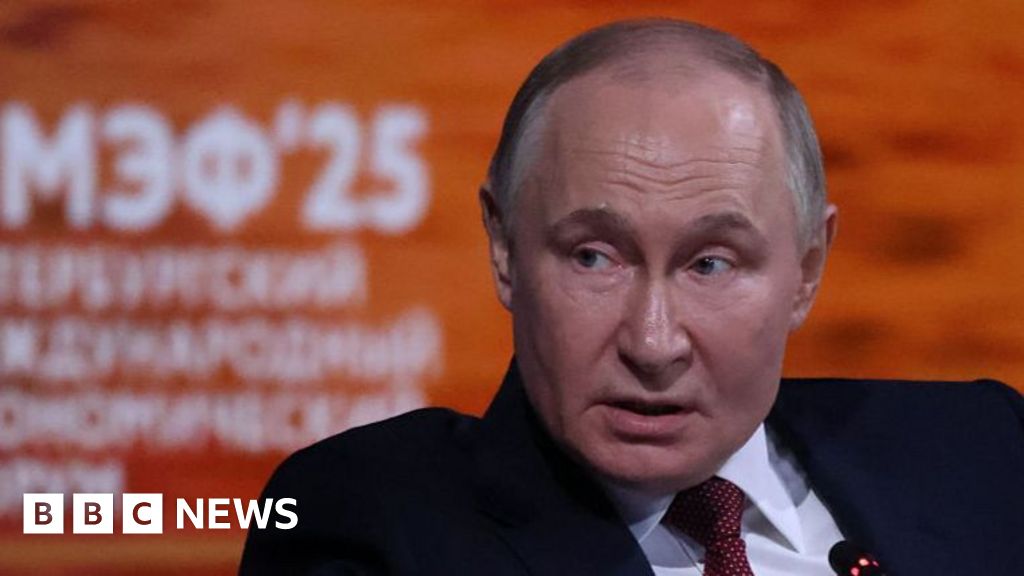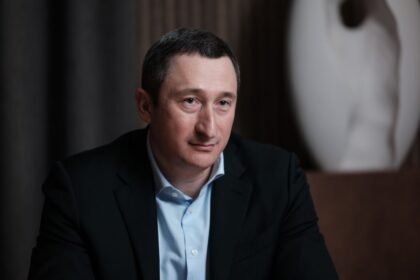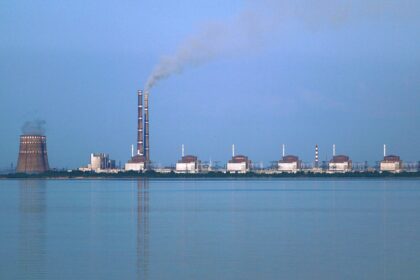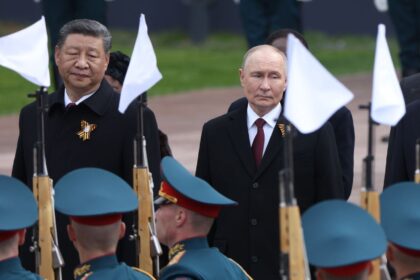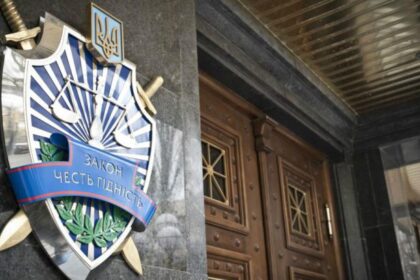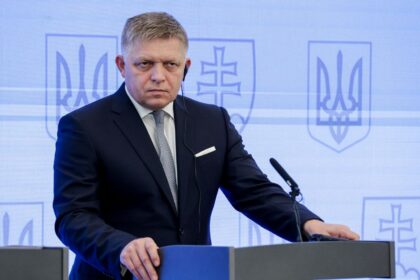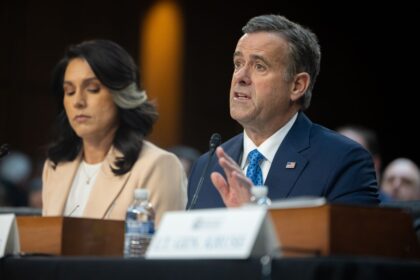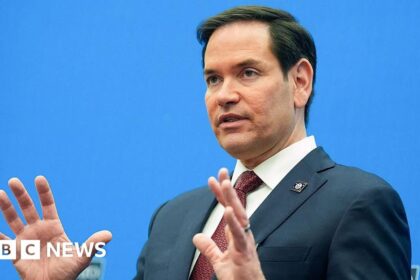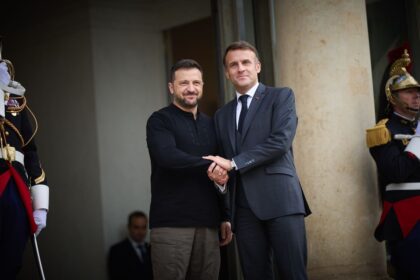**Russia’s Economic Woes: A Conversation with a Russian MP and the Kremlin**
At this year’s St Petersburg International Economic Forum, I had a brief but telling conversation with a Russian MP. He approached me and asked, “Are you going to bomb Iran?” Taken aback by his question, I replied that I wasn’t planning to bomb anyone. He then corrected himself, saying he meant the British government, and by extension, Donald Trump. The MP even went so far as to suggest that Trump was being controlled by Britain and a mysterious “deep state.”
This bizarre exchange set the tone for the rest of my time at the forum. While President Putin’s keynote speech focused on the economy, his comments in the subsequent panel discussion were more telling. He boasted about Russia’s military might, saying, “We have an old rule… where the foot of a Russian soldier steps, that’s ours.” This statement seemed out of place at an economic conference, and it highlighted the Kremlin’s true priorities.
Since the full-scale invasion of Ukraine in February 2022, Russia’s economy has taken a backseat to the war effort. While the country’s economy has grown, this growth is largely due to massive state spending on defense and the military-industrial complex. However, even this war-related growth is now slowing down.
At the forum, Russian officials were clearly nervous about the state of the economy. Minister for Economic Development Maxim Reshetnikov warned that Russia was teetering on the brink of recession, while Central Bank Governor Elvira Nabiullina noted that many of the country’s resources had been exhausted. The St Petersburg International Economic Forum was meant to showcase Russia’s economic prowess, but the thousands of international sanctions imposed over the war in Ukraine have taken a toll.
Despite this, there is hope that some Western businesses may return to Russia. US President Donald Trump has expressed his desire for better relations with Moscow, and American Chamber of Commerce President Kirill Dmitriev suggested that many American companies are interested in returning. However, Robert Agee, president of the American Chamber of Commerce in Russia, was more cautious, noting that an end to the conflict in Ukraine would be necessary before Western businesses could seriously consider returning.
The conversation with Mr. Agee highlighted the controversy surrounding Western businesses returning to Russia while the war continues. While some may argue that it’s up to individual companies to decide whether to return, others will see it as a tacit endorsement of Russia’s actions in Ukraine.
**Russia Faces Tough Economic Challenges**
In conclusion, Russia faces significant economic challenges, including high inflation, high interest rates, and reports of stagnation or recession. These problems are now being openly discussed and debated, but it remains unclear how soon they will be resolved. The Kremlin’s priorities, as evident from President Putin’s comments at the forum, suggest that winning the war in Ukraine is more important than addressing these economic issues.
**A Commentary**
This conversation with a Russian MP, combined with the statements made by President Putin and other officials, highlights the disconnect between Russia’s economic reality and its ambitions. While some may see this as a sign of weakness, it’s more likely that Russia’s leadership is prioritizing short-term gains over long-term stability.
The return of Western businesses to Russia will be a complex issue, with many factors at play. However, one thing is certain: the war in Ukraine has had a profound impact on the global economy and international relations. As we move forward, it’s essential to consider the consequences of Russia’s actions and the economic challenges that lie ahead.
**A Deeper Analysis**
This article sheds light on the complex relationship between Russia’s economy and its military ambitions. The conversation with a Russian MP serves as a microcosm for the larger issue at hand: how can a country prioritize winning a war while also addressing significant economic challenges?
The statements made by President Putin and other officials suggest that Russia is willing to sacrifice its economic stability in pursuit of short-term gains. However, this approach may ultimately lead to long-term instability and harm the Russian people.
In conclusion, this article offers a nuanced view of Russia’s economic situation, highlighting both the challenges and the complexities at play. As we continue to navigate these issues, it’s essential to consider the broader implications for global trade, diplomacy, and security.




